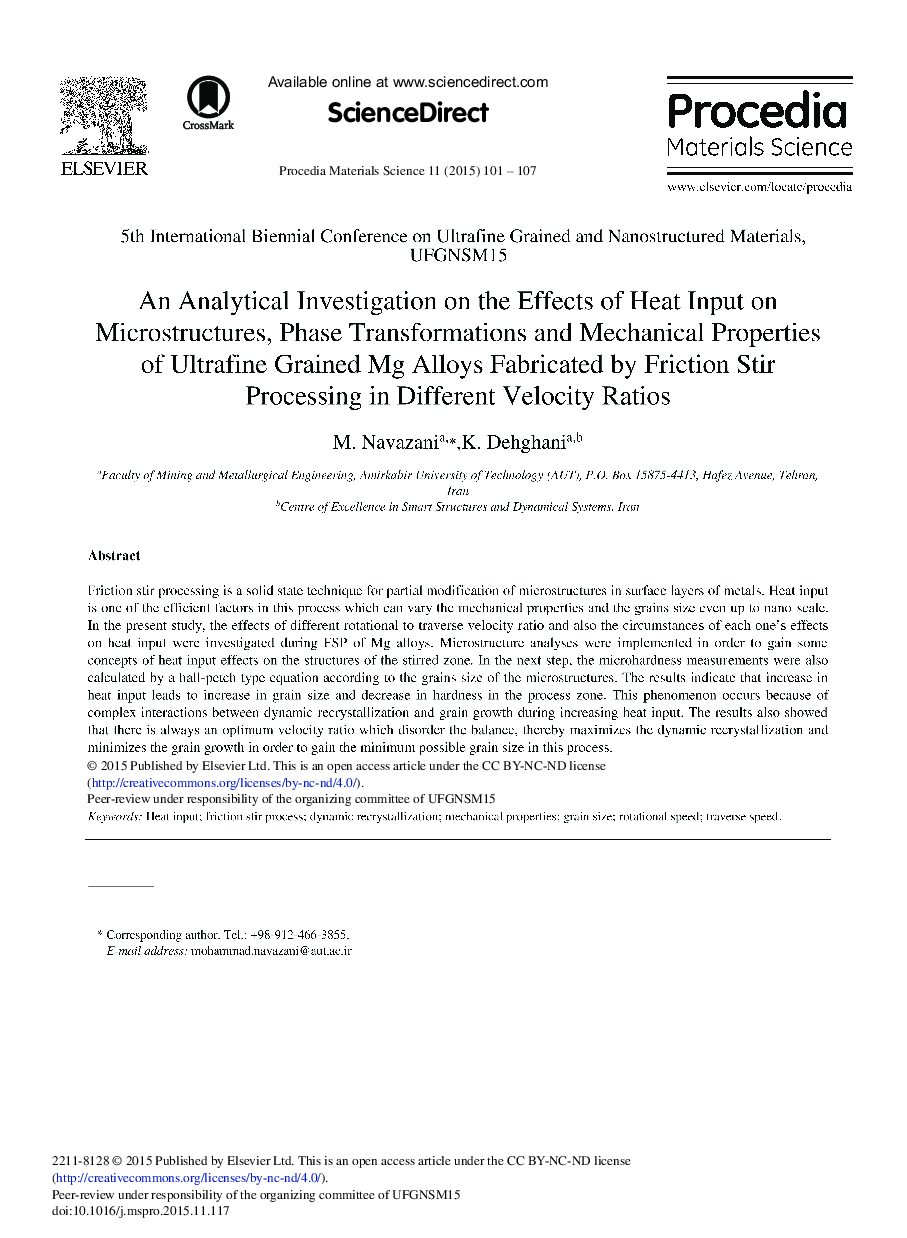| Article ID | Journal | Published Year | Pages | File Type |
|---|---|---|---|---|
| 1634029 | Procedia Materials Science | 2015 | 7 Pages |
Abstract
Friction stir processing is a solid state technique for partial modification of microstructures in surface layers of metals. Heat input is one of the efficient factors in this process which can vary the mechanical properties and the grains size even up to nano scale. In the present study, the effects of different rotational to traverse velocity ratio and also the circumstances of each one's effects on heat input were investigated during FSP of Mg alloys. Microstructure analyses were implemented in order to gain some concepts of heat input effects on the structures of the stirred zone. In the next step, the microhardness measurements were also calculated by a hall-petch type equation according to the grains size of the microstructures. The results indicate that increase in heat input leads to increase in grain size and decrease in hardness in the process zone. This phenomenon occurs because of complex interactions between dynamic recrystallization and grain growth during increasing heat input. The results also showed that there is always an optimum velocity ratio which disorder the balance, thereby maximizes the dynamic recrystallization and minimizes the grain growth in order to gain the minimum possible grain size in this process.
Keywords
Related Topics
Physical Sciences and Engineering
Materials Science
Metals and Alloys
Authors
M. Navazani, K. Dehghani,
